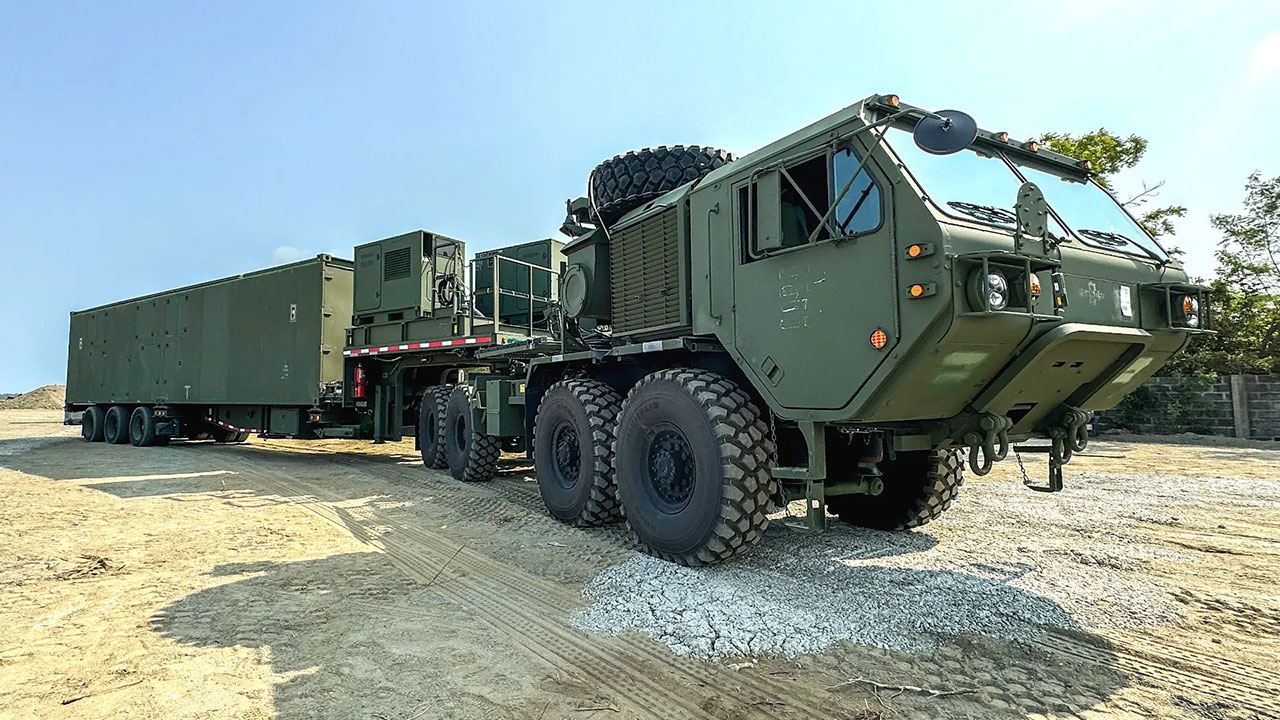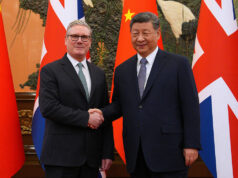Manila unlikely to give in to Chinese pressure to surrender missile system

By John Victor D. Ordoñez, Reporter
THE PHILIPPINES is unlikely to succumb to Chinese pressure to give up Washington’s mid-range Typhon missile system amid worsening tensions between the Asian neighbors, security analysts said at the weekend.
“The Marcos administration understands that the issue about the Typhon is a sovereign, Philippine decision and it is an important military capability especially when faced by a large, aggressive expansionist power,” Raymond M. Powell, a fellow at Stanford University’s Gordian Knot Center for National Security Innovation, told BusinessWorld in an X message. “To unilaterally disarm while Beijing continues its aggression would make no sense.”
The Chinese Embassy in Manila did not immediately reply to a Viber message seeking comment.
The People’s Daily, the newspaper of the governing Communist Party, has urged the Philippines to give up the Typhon missile system, which was deployed by US forces to the Philippines in April last year as part of joint military exercises to keep the peace in the region.
This followed the Chinese Foreign Ministry’s Feb. 12 statement calling on the Philippines to “change the course” by reconsidering its plan to keep the US Typhon missile launchers.
Philippine President Ferdinand R. Marcos, Jr. earlier said he was willing to pull out the US Typhon missile once China stops its aggression in the South China Sea.
“It is China’s wishful thinking to think that we would just bend over backwards and release our capabilities or ensure that we do not have the capacity to defend ourselves based on international law,” Don Mclain Gill, who teaches international relations at De La Salle University in Manila, said in a Facebook Messenger chat.
He said Manila is has the right based on international law to boost its defense capacity and safeguard its borders against an “expansionist force.”
China claims sovereignty over almost the entire South China Sea, a vital waterway for more than $3 trillion of annual ship-borne commerce, putting it at odds with Brunei, Indonesia, Malaysia, the Philippines and Vietnam.
A United Nations-backed tribunal in 2016 voided China’s claim for being illegal, but Beijing does not recognize the ruling.
Philippine Defense Secretary Gilberto Gerardo C. Teodoro, Jr. has said Manila would not be a “doorstep” and that acquiring the missile system is the country’s prerogative.
The US is the Philippines’ major security partner, with a 1951 Mutual Defense Treaty compelling both nations to defend each other in case of an armed attack.
Washington’s military has moved its Typhon launchers, which can fire multipurpose missiles up to thousands of kilometers, from Laoag airfield to another location on the island of Luzon, Reuters earlier reported.
The Tomahawk cruise missiles in the launchers can hit targets in both China and Russia from the Philippines. The SM-6 missiles it carries can strike air or sea targets more than 200 kilometers away.
Philippine Foreign Affairs spokesperson Ma. Teresita C. Daza earlier said the US had exempted security assistance to the Philippines worth $336 million from its foreign aid freeze.
US President Donald J. Trump earlier ordered a 90-day pause on existing and new foreign development assistance pending review to ensure they are aligned with his “America First” policy.
“President Marcos’ statement about removing them if China ends its aggression is a clear statement of reality,” Mr. Powell said. “It is the threat of Chinese military force that has generated their deployment in the first place.”
Armed Forces of the Philippines Chief of Staff General Romeo S. Brawner, Jr. has said the country is looking to buy more military hardware to modernize its arsenal, including additional BrahMos missiles from India and at least two submarines.
The Philippines has contested China’s sweeping claims in the waterway through diplomatic channels by filing more than 190 diplomatic protests since Mr. Marcos took office in 2022.
Foreign Affairs Secretary Enrique A. Manalo has said Manila plans to raise its dispute with China before the Association of Southeast Asian Nations when it takes the chairmanship in 2026.
“The Philippines will not bend according to the whims of an expansionist force,” Mr. Gill said. “Chinese state media thrives in fragmentation and in vulnerability so it would obviously not want the Philippines to be in a position that will allow it to defend itself.”



